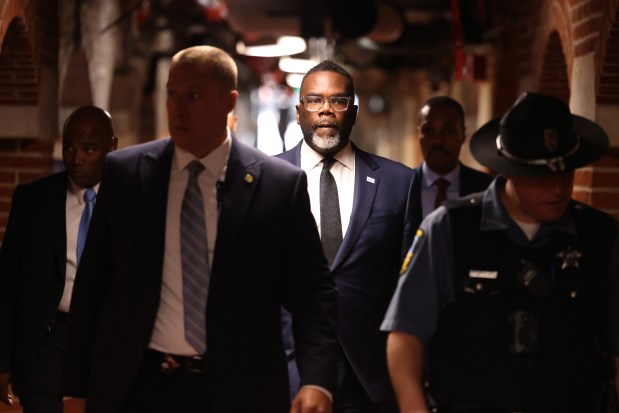As we see antisemitism rearing its ugly head once again, especially here in Chicago, where a Jewish man was shot on his way to synagogue in the West Ridge neighborhood on Oct. 26, we feel compelled to take action, much like the people of the Chicago area did in 1977, rising up in protest against a planned Nazi parade in Skokie, home to many Holocaust survivors.
When this group of neo-Nazis planned its march in Skokie, Moody Bible Institute took out a full-page ad in all of Chicago newspapers opposing the event. In the ad, Moody pledged to “stand with the Jewish community against any propaganda and activity that singled out Jewish people as their object of hatred.” Thousands of Chicagoans — many of them inspired by their Christian faith — stood up together to oppose the march, preventing it from happening in Skokie.
While many people may believe antisemitism originated with the Nazis, this ancient prejudice has existed for millennia.
The well-known Jewish holiday, Purim, describes a plot by a Persian official who attempted to destroy the Jewish people during the reign of King Artaxerxes but was foiled by efforts of Jewish Queen Esther. There are many other examples of attempted genocide against the Jewish people throughout history, as well as several periods of hatred and exile when they were forcibly taken from the land God had promised them, according to the Bible.
Following their return from exile, Israel came under the control of the Syrian Greeks in the 3rd century B.C., who tried to force Jewish people to worship Greek gods. In 167 B.C., a family known as the Maccabees led a revolt in which the Jewish forces, though greatly outnumbered, defeated the Syrian Greeks. This victory is the basis for the holiday of Hanukkah.
From the early church through the Middle Ages, church leaders persecuted Jewish people, accusing the Jewish people of deicide. Persecution of Jewish people intensified around the 12th century during the Crusades, when Jewish people were massacred by Crusaders on their way to the Holy Land.
Several Protestant reformers treated the Jewish people harshly, including Martin Luther, who wrote a pamphlet titled, “Concerning the Jews and Their Lies.” Russian and Ukrainian Orthodox leaders initiated a series of pogroms in the late 1800s and early 1900s across Russia, which were especially violent and shocked the world.
The modern age saw the dawn of faulty “race-based” hatred of Jewish people, as the Jewish people are a people or ethnic group and not a race. These faulty theories, which underscored the supposed inferiority of Jewish people, proved pivotal to Nazi ideology and led to the Holocaust.
Those who perpetrated the heinous attacks on Oct. 7, 2023, are only the latest in a long line of those driven by false religious zeal and hatred to try to destroy the Jewish people. Today, we, especially Bible-believing Christians, have the opportunity — and the responsibility — to oppose antisemitism now growing in the United States.
As antisemitism erupts in America and globally, Moody Bible Institute hoped to address this toxic trend by hosting a “Summit on Opposing Antisemitism.” In partnership with Chosen People Ministries, the conference aimed to help attendees better understand the history of antisemitism and learn how to respond appropriately by exploring numerous practical ways to extend support to the Jewish community today and oppose this virulent hatred.
Moody chose to host the summit because opposing antisemitism is part of the rich heritage of the school. Its biblical commitment to the value and dignity of every person, and its love for Israel and the Jewish people, have been foundational aspects of Moody since the institute was launched nearly 140 years ago.
The conference took place on the anniversary of Kristallnacht, the “Night of Broken Glass” — a pogrom against the Jewish people on Nov. 9, 1938, when Jewish-owned businesses, homes and synagogues were attacked and destroyed across Nazi Germany. Then, many people and even devout Christians stood by in silence. Today, we dare not be silent.
Mitch Glaser, Ph.D., is president of Chosen People Ministries. Michael Rydelnik, Ph.D., is the vice president and academic dean and professor of Jewish studies at the Moody Bible Institute.
Submit a letter, of no more than 400 words, to the editor here or email letters@chicagotribune.com.



